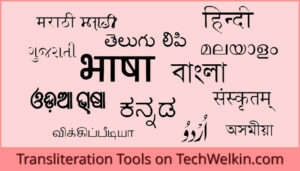This is my First Post in a new Series of Language Posts for you all on AntaraMitra.com.
I’m having fun with vocal nuances and differences between Hindi and Urdu, Bengali, Gujarati, Marathi, Tamil, Telugu, etc. written as sung or spoken texts. I’m passionate about language. We may study them, but we speak no dead languages in India!
Regional and personal dialects, accents and quirks abound here, offering fertile ground for comedy, confusion and conflict—preferably comedy!
Voice-over vocals come easily to me. I’ve worked with some of the best in film looping and sound sync for a decade. It’s what I do at T-Mantra Music and through the amazing folks at Purple Star Entertainment.
Friends say I have a future in comedy and an ear for subtle differences. If so, it’s a gift, lol. I don’t take sides on regional accents; impressions arise with admiration and love for my targets (victims, lol).
I can pronounce most words in the language’s best-applied rules. It’s said imitation’s the sincerest form of flattery. Let’s bring the flattery!
I can imitate the vocalizations of others minus stereotype or culture judgment. God knows I have an occasional comedy lapse or peculiarity. Please forgive me, I mean no harm, lol.
I will let you know when I’ve basically ended this Languages Posts Series here (~12-16 posts; we’ll see), so for now we go with a very handy primer for writers. If you have any difficulty memorizing all of this, fear not! Examples and detailed contextual analyses abound online.
I love languages, especially our rich South-Asian and Indo-European ones. If you’re a spelling Nazi like a few I’ve met, maybe this site has what you need to keep your Hindi correct! I struggle through life as an imperfect being. God and my family love me anyway.
I can tolerate spelling-obsessed writers too. Most can take a joke (are open-minded). No associate or co-worker of ours is a Nazi, lol. It’s a hackneyed expression. We take the fun, not the harsh road; sorry, we’ll do better.
When a concept appears in a given tongue or dialect, research in one or more forefather or cousin tongues adds insight and keys to old and current idioms. I try to get it right as written.
Transliteration may or may not work in every case, however rehearsing that transition can give me pause and may inform my delivery, whether it’s sung or recited in prose voice. The old computer-programming axiom applies: Garbage in, garbage out. Oui.
Without further ado, here is a #niceYouTubevideo that explains some Spelling Differences between British and American English:
To put a cap on the excellent Oxford Dictionary work in the video (it covers familiar variations), dialogue is used in both countries for human speech, esp. play or movie characters, and dialog is for a small alert box in interactive computer software.
(So, pay attention and give the dialog permitted input, or dwell in computer hell until some fork in the software occurs). Hmm, I hadn’t considered how a computer software program could be considered autistic or belligerent, lol. Grow up, computers!
Here’s a fun fact: a soliloquy is a form of monologue (monolog) in which the speaker has a conversation with herself (hmm, myself?), or in a monologue in a play, that actor (playing a role) still has implied dialogue with her audience.
When I learn a new song, I may ask (the songwriter or my take on the lyric) whether the singer is singing to a real person (obviously this is the case in most feature film duets) or to herself or God or her audience; it’s also common in dance songs. It helps one grasp an author’s intent.
Sometimes, esp. in dance numbers, the lyrics may be intentionally vague or ambiguous, so trying to sap every last drop of pathos or humour could be quite futile. I like the occasional twist or obscurity to give a song’s arc (or interpersonal intent, or even merely its tone quality) more interest.
Please have a look at the tools site linked from the image at TOP. Also a search on this blog-site for Bengali will yield my aging post featuring three text input tool links that are useful in such exercises. Enjoy!
I don’t stress out over such minutiae (or minutia). so I hope that these several peculiarities don’t cause you any worries, either!

